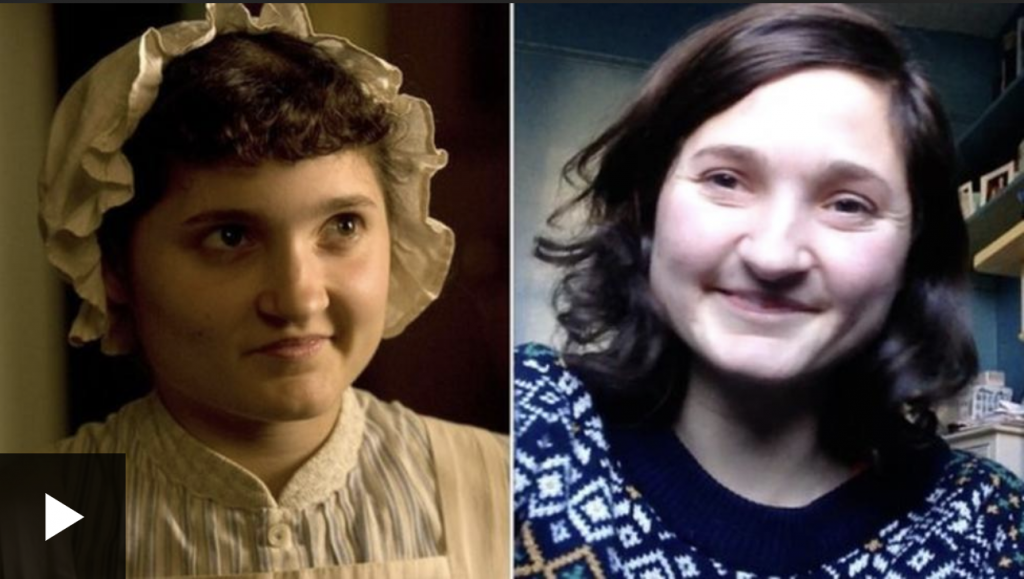
Lesson 9: Body Image – How to Promote Body Confidence
This module is all about another topic we are so excited to share with you all. Body image is something most of us have struggled with at some point in their lives if we’re to be honest. This is not just an opportunity for you to take the time to explore the materials for your children’s benefit, but perhaps for you too, to clear some deep-seated beliefs from your past.
Here's what we'll cover:
- Interview with psychological activist David Bedrick
- What is a positive body image?
- What are the top 'avoids' in the home environment that you can implement today?
- Action points from this topic
- Things to watch
Brenda chats to psychological activist David Bedrick J.D., Dipl. PW
CLICK HERE for the Soundcloud (Audio Only) File
From this module we want to help you achieve
- A greater understanding of the reasons that either set us up positively or lead us to weakness, when it comes to body image
- Remove any feelings of shame for what you’ve felt or done in relation to body image
- Help you see the path to repair and instilling positive body image in your kids and yourself with some simple techniques, healthy language usage and affirmation

So let’s start by having a look at what positive body image is and go from there…
What is a positive body image?
Positive body image occurs when a person is able to accept, appreciate and respect their body - easier said than done, right? Positive body image is so, so important because it is one of the protective factors which can make a person more resilient to eating disorders. (National Eating Disorders Collaboration)
Instilling a positive sense of self is one of lifes lasting gifts we can give our children. It’s one where if we catch the lighthearted joking, shaming and throw-away lines, and nip them in the bud early, we’re in for an easier ride of it later. That said, if we have older kids, or if you’re even hoping to benefit from today’s subject as a 30, 40 something mum or beyond, there are still many wonderful things we can do to heal from past body image woes.
We always seem to be under pressure to look our best, and quite often the ideal presented by airbrushed magazine models is potentially dangerous to how we view ourselves (and our health, both mental and physical). Our children need to be taught the realities.
From a very young age children are exposed to music videos, fashion magazines, Barbie dolls, Bratz dolls, advertising and TV shows that focus on appearance. The ideal image the media bombards us with is the skinny supermodel or actor or masculine ideals, whose image has most likely been manipulated to within an inch of its life, as with the examples below. Specifically boys and men believe they need to be both lean and muscular to meet perceived social expectations.
This can create the unnecessary expectation of body image, setting our kids up for disappointment, low self-esteem, or even depression and eating disorders because their bodies don’t measure up in comparison. In other words, failure by someone else’s rules - rules that aren’t even possible in reality.
This isn’t about pointing the finger at any specific body type, we are all different, but our children need to know that this is not the only acceptable body type to have:
and look what they’ve done to Jessica Alba, truly, if there was ever a case for anyone not needing airbrushing yet still…
Where positive body image becomes tricky, is when we see so many of these airbrushed images, that a few curves and dimply skin, or lack of six pack can feel like you’ve failed - at a very young age. The degree of feeling a failure is reflected in many ways.
Our children need to know that true beauty lies within, and that they are respected and loved by their family and friends for who they are, not how they look - Brenda Janschek
So many of us will remember our mothers to be perpetual dieters, whatever was the next fad – Weight Watchers, Jenny Craig, Low Fat, Lemon Detox, Fruit until 5. And certainly appearance was a hot topic on everyone’s lips at get-togethers. In western society it is easy to see how body image has become a cultural norm.
Have you noticed this habit amongst our own peer groups today? To the point where it’s almost a ‘conversation-padder’ like the weather. – “Oh wow you look great, you look like you’ve lost weight” is often the first comment to emerge from our lips. It’s delivered as a “go you, you success story”. It’s received as a “Oh yay. I’ve achieved something that makes me more worthy”.
From Brenda…
"As a young girl, it wasn’t long before I followed in my mum’s footsteps, jumping on the Weight Watchers bandwagon, beginning the diet merry-go- round which included diet pills at one point as appetite suppressors. Also working in the ‘biz’ as an ex-model, ex-model agent and photographer’s producer, I experienced first hand, not only the crazy psychological issues models experience due to their bodies being the main attention focus, but I saw the reality of the amount of air-brushing and manipulation which occurs in photography, not to mention the huge part hair and makeup, styling and lighting, and the right angle contribute to the final product.
Now that I know better, in my own home, with my own children, bodies are not discussed in the context of weight or shape. Rather, our bodies are strong, flexible or fit, and ‘moving our bodies’ makes us feel healthy, happy and vibrant. Body function needs to be emphasised and the instrumental part proper nutrition and exercise play."
From Alexx…
"There wasn’t a diet I wasn’t on from 18 to 31. The low-fat diet was probably the most prominent of them all. The gym junkie caffeine diet, the smoking ‘diet’, the weight loss pills to suppress appetite. If someone could have told me it would set me up for long term metabolism issues, weak liver, thyroid function challenges would I perhaps not have dieted? Hard to say. We’re rather apocalyptic us humans - we generally wait until things are bad before we ‘wake up’ so to speak. Unfortunately, that was the case with me."

What are the top 'avoids' in the home environment that you can implement today?
Ditch them. Get yourself weighed at the gym, your naturopath or doctor’s office if you really feel you want to check in every now and then, BUT you don’t need them at home and you certainly don’t need to ‘celebrate’ the loss of a kilo, nor lament the gain of a kilo with your children. This habit must be broken to stop perpetuating the cycle and encourage doing so with good fellow parent friends. Perhaps run some sort of a challenge?
2. Fashion magazines and weekly trashies
Not only will these be giving you comparisonitis, but your kids too.They have this, you have that, he is being called fat for packing on the pounds by the media, pounds are bad, extra weight means no one likes him anymore. You see how easy it is for kids to form their beliefs from simply flicking through a magazine. Scary, right?
3. Exposure to video clips
Have you watched these lately? Back in the teen years, this sort of content was R rated and you’d only maybe get to see a scantily clad woman or two like that if you were at your older cousin’s sisters, friends house and someone had stolen something like ‘Revenge of the Nerds’. Anyone else feeling a bit old? Well these days, it’s not just bare bones fashion and dancing, but subliminal sex scenes and men dominating women and hard core gear. It’s not healthy for tweens to grow up believing this is right or normal, or what ‘the cool kids do’.
Granted, as much as we try to protect own daughters and sons from the influence of this sort of exposure, this is the real world and the exposure can come easily at a friends place, an acquaintance, a dance class or even a teacher. The best we can do is to instil the values that we think will build resilient children who are confident and happy in themselves.
Body dissatisfaction is the top ranked issue of concern for young people (Mission Australia 2011)
Further suggestions:
- Explain that certain things like height, muscle composition and bone structure are genetically fixed and that there are no right or wrongs when it comes to weight, shape, size and appearance, everyone is different.
- Communication is crucial- explain how photos are manipulated, and why. Explain show business and music videos and how these behaviours are not normal, and openly discuss sexism, examples of strong, healthy women, and how men should treat women. If it’s a son in question with this “real men and good men would never treat a woman like that.”
- Avoid emotive descriptions such as ‘fat’ or ‘thin’ and either being able to make a person happier or depressed. Emphasise the benefits of a nutritious diet, eating slowly and wholesomely and having a great exercise regimen full of ways you love to move your body, for the sake positive wellbeing.
- Teach our children to appreciate what our bodies can DO, not how they look.
- Focus on other factors other than appearance - example value effort, skill, positive personality traits and achievements.
- Draw attention to inspiring role models, not fashion / movie stars. If your child really wants to idolise a fashion model, help them dig deeper to find out more about their achievements outside of fashion or celebrity. Discuss how idols need to earn their idolise in your mind - find out about their philanthropic efforts of humanitarian work (think people like Angelina Jolie, George Clooney, Tara Moss, George Clooney. Oops. Said that one twice!)
- Don’t focus on sport and exercise as a means to weight loss and weight management. Explain how sports and exercise clear the mind, reduce stress and anxiety, and connect you with nature. Highlight the good feelings produced after exercise and eating a nutritious diet. Exercise and a healthy diet give you confidence and skills, while connecting you to your community via a team or at the table.
- While it’s natural to be aware of how you look and to care about your appearance, teaching our kids to appreciate their own unique beauty will help to stop them comparing themselves to others.
- Teach your child to be proud of their appearance and make an effort. This could be instilling the wearing of a nice shirt or dress to a BBQ or party invite. It could be helping them take an interest in what shapes and styles of clothes or colours or themes they enjoy best. This is healthy and helps them assert confidence.
For many of us this is going to mean taking our own personal steps towards our own acceptance and self love. Working on modelling self-acceptance of your own body shape may prove to be the hardest part.
We are our children’s main role model. They are listening when we talk about our (and other’s) bodies. They notice when we diet and how often we do so, which will play a part in whether or not they are satisfied with their bodies. Let’s show them how passionate we are about delicious nutritious food and exercise, and let’s pass on the message that it’s because we want to ‘feel’, not ‘look’ a certain way – healthy and fantastic!

Where to from here?
- Decide where your child is at and which topics and ideas from the materials are appropriate to their age and development. We really encourage you to explain in great detail why something’s not allowed or isn’t in the house so that your child will fully understand your stance and be given the best chance of understanding why something is a ‘no no’. Make a note of the topics you’ve decided to focus on and write a few ideas down about action steps you’re going to take and / or conversations you’re going to have.
- Have the conversations and take the actions and go back to your journal and go over with yourself in a private moment how you believe it went and what you might like to progress the discussion / action to next time so you’re clear in your mind about what ‘moving forward’ looks like
- Check back in with your goals, promised actions and planned discussions / further learning regularly, to keep yourself on track.
Example: Scales and having a teenager.
Example: Young boy been using the word ‘fat’ in relation to others not being ‘good enough’ or ‘funny looking’ or in a teasing fashion.
Example: Talking about pop music clips / fashion magazines with your children and tweens.

Some things to watch:
A great video of a young British actress on uniqueness and body positivity!

Body Evolution: Before and After
A big and often heavy topic, but as parents one we absolutely need to remain conscious of. We hope you get something out of it to apply to your own life and experience.
Alexx and Bren x
© Thrive 2020
Disclaimer: This eCourse contains the educated opinions of the authors and does not substitute for medical advice from your health care professional. It is your responsibility to consult your medical provider before making any changes to your diet. The author, therefore, assumes no responsibility for the decisions you take based upon the information contained in this eCourse.


